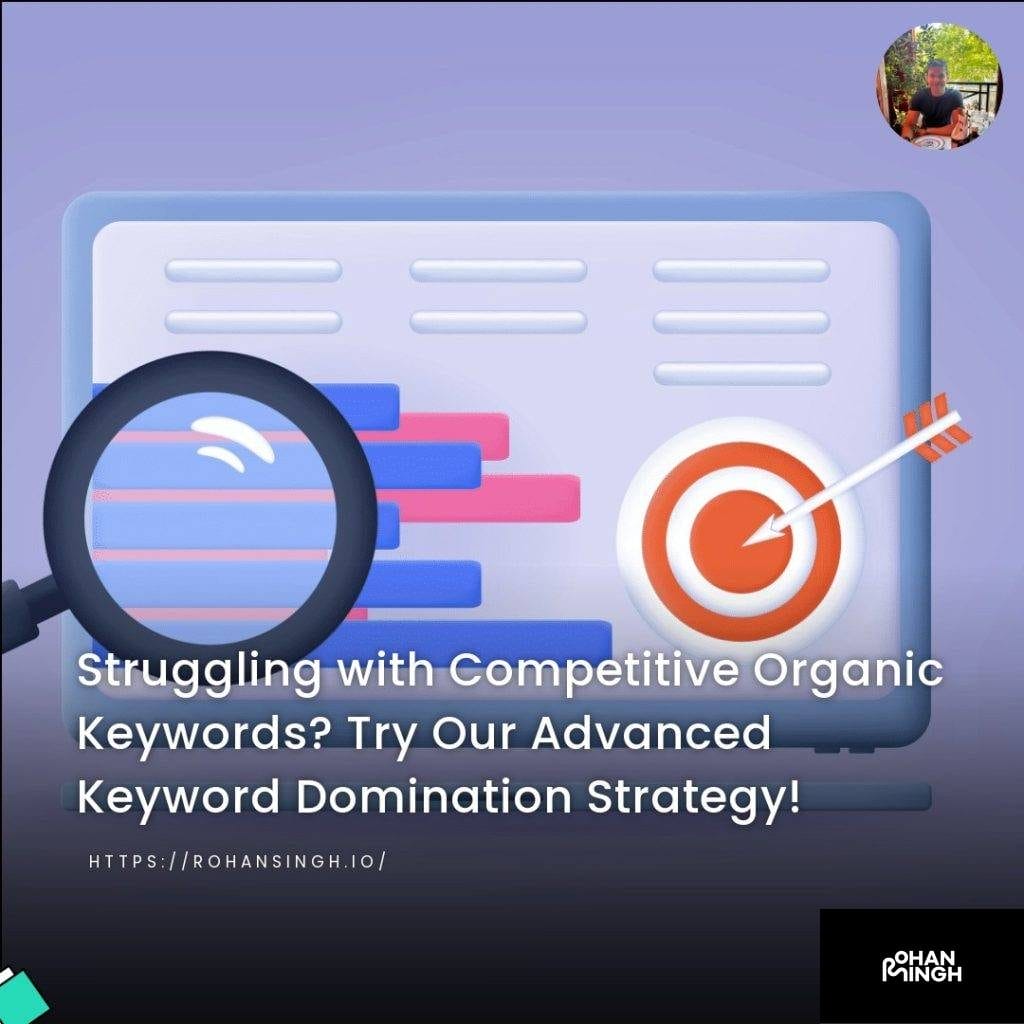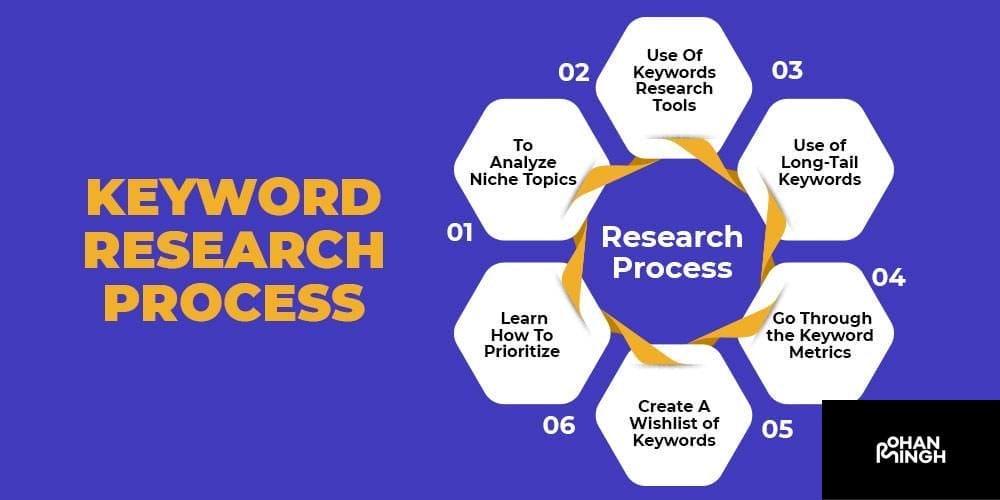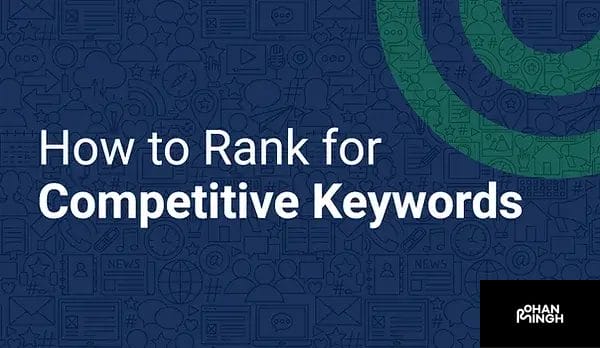Struggling with Competitive Organic Keywords? Try Our Advanced Keyword Domination Strategy!

What is organic search?
Organic search refers to the process of obtaining traffic from search engine results pages (SERPs) naturally, without any paid advertising. When a user types a query into a search engine, the search engine then displays the most relevant and trustworthy results based on various factors such as keyword relevance, search intent, and website authority. This top-ranking, non-paid traffic is commonly known as organic search traffic. Organic search is a crucial component of any successful SEO strategy as it can drive highly targeted and qualified traffic to a website, increasing its visibility and potential for conversions. By optimizing your website and content for organic search, you can enhance your online presence, attract potential customers, and gain a competitive advantage in the digital landscape. With the right SEO strategies and tools, you can improve your website’s organic search rankings and ultimately achieve advanced keyword domination within your industry.
Table of Contents
ToggleWhat are competitive keywords?
Competitive keywords are highly sought-after search terms that have a significant number of competing websites vying for organic search positions. These keywords play a crucial role in SEO as they have the potential to drive a substantial amount of targeted traffic to a website.
In the highly competitive digital landscape, outranking competitors is essential to gaining a strategic edge. By targeting competitive keywords, businesses can increase their online visibility and attract a larger audience. This increased visibility can lead to higher organic rankings, more organic search traffic, and ultimately, more potential customers.
When selecting competitive keywords, it is essential to consider their relevance to your business. By choosing keywords directly related to your products, services, or industry, you can attract the right audience and ensure that your website is meeting the needs of potential customers.
Additionally, you should consider the search volume of these keywords. Aim for keywords with a substantial monthly search volume, as this indicates a higher potential for attracting traffic.
However, it’s important to balance search volume with keyword difficulty. Assess the competition for a particular keyword by using tools or applications that provide a keyword difficulty score. This score will help you gauge how challenging it may be to rank for a specific keyword.
To achieve advanced keyword domination, it’s important to conduct thorough competitive analysis and identify opportunities to target competitive keywords where your competitors are lacking. By creating high-quality content and using advanced SEO strategies, such as internal linking and link building, you can increase your chances of outranking your competitors and gaining a significant edge in the market.
Competitive keywords are a critical aspect of SEO, allowing businesses to outrank competitors and gain a strategic advantage. By selecting keywords that are relevant, have a reasonable search volume, and manageable difficulty, businesses can effectively target their audience and strengthen their online presence.
Let's talk about your future project!
Eager to collaborate on your upcoming endeavor? Let's explore and ignite the potential of your next big idea, shaping a promising future together!
Step 1: Identify Your Target Audience
Before diving into targeting highly competitive organic keywords, it is crucial to identify your target audience. Understanding your audience’s demographics, preferences, and search intent will help you create content that resonates with them and meets their needs. Utilize tools like Google Analytics and Google Search Console to gain insights into your website visitors and their behavior. Analyze their search queries, the devices they use, and the pages they frequent the most. These valuable data points will enable you to craft an effective SEO strategy that aligns with your audience’s interests and preferences. By tailoring your content to your target audience, you can increase engagement, capture potential customers’ attention, and create a strong foundation for advanced keyword domination.

Who Is Your Ideal Customer?
In the competitive landscape of organic keywords, understanding your target audience is crucial for effective SEO strategies. By honing in on who your ideal customers are, their demographics, intent, and goals, you can tailor your content to meet their needs, boost your organic rankings, and dominate your chosen keywords.
1. Defining your ideal customer:
To begin, conduct thorough research to gain insights into your target audience. Consider factors such as age, gender, location, occupation, and interests. By understanding these demographics, you can create detailed buyer personas that represent your ideal customers.
2. Analyzing intent and goals:
Next, dive deeper into the intent behind your customers’ searches. Identify the problems or challenges they face and the goals they aim to achieve. By aligning your content with their intent, you can provide valuable solutions that address their needs, increase organic traffic, and improve conversion rates.
3. Crafting a content map:
A content map is essential for plotting the buyer’s journey stages and aligning them with your buyer personas. This comprehensive roadmap outlines the content types, topics, and keywords that cater to each stage of the customer’s journey, from awareness to consideration and conversion.
Top 5 relevant keywords:
1. Buyer personas
2. Buyer’s journey
3. Demographic
4. Intent
5. Goals
To dominate highly competitive organic keywords, it’s vital to understand your ideal customer. By considering their demographics, intent, and goals, and mapping their journey, you can create high-quality content that not only attracts organic traffic but also resonates with and converts your intended audience. Incorporate Advanced Keyword Domination strategies into your content, utilizing tools like Google Analytics and keyword research applications to enhance your chances of success.
Research Your Competitors’ Strategies
To effectively dominate your target keywords, it is crucial to understand your competitors’ strategies and identify the keywords they are currently ranking for. This allows you to gain valuable insights and fine-tune your own approach. Here are the steps to research your competitors’ strategies:
1. Utilize a competitive analysis tool: Start by using a comprehensive competitor analysis tool like Semrush’s Organic Research. This powerful tool provides detailed data on your competitors’ organic rankings, including the keywords they are targeting and their current positions.
2. Filter out brand keywords: Once you have identified your competitors’ keywords, filter out their brand-related keywords. This will help you focus on the keywords that are directly relevant to your business and industry.
3. Create a list of selected competitor’s best keywords: From the remaining keywords, compile a list of your selected competitor’s best keywords. These are the keywords that have high search volume and are potentially valuable for your own SEO strategy.
4. Analyze relevance and difficulty: Next, analyze the relevance of these keywords to your business. Look for keywords that are closely aligned with your target audience, products, and services. Additionally, consider the difficulty of ranking for these keywords. Tools like Semrush’s Keyword Difficulty Score can help you assess the competition and choose keywords that have a good balance of search volume and difficulty.
By thoroughly researching your competitors’ strategies and identifying their best keywords, you can gain a competitive edge and devise an effective SEO strategy that will allow you to dominate your advanced keyword of choice: Advanced Keyword Domination.
Analyze Your Website Traffic Data
To truly dominate organic keywords and advance your SEO strategy, it is crucial to analyze your website traffic data. Two essential tools for this are Google Analytics and Google Search Console.
Google Analytics provides comprehensive insights into your website’s performance. You can track key metrics such as organic search traffic, user behavior, and conversions. By analyzing organic search traffic, you gain a deeper understanding of which keywords are driving the most visitors to your site.
In conjunction with Google Analytics, Google Search Console uncovers valuable data on keyword rankings and click-through rates. It reveals the queries that users enter to find your site, allowing you to assess the effectiveness of your keywords.
To conduct a thorough traffic analysis, review the organic search traffic report in Google Analytics. Identify the keywords that generate the most traffic and optimize your content accordingly. Track your keyword rankings in Google Search Console to gauge your organic search performance over time.
By continuously monitoring and analyzing your website traffic data, you can uncover opportunities to improve your keyword targeting and content strategy. This advanced approach ensures that you stay ahead of the competition and dominate your chosen keywords.
Remember, with the right tools like Google Analytics and Google Search Console, you can gain valuable insights to fuel your advanced keyword domination strategy.

Step 2: Perform Keyword Research
To target highly competitive organic keywords and achieve advanced keyword domination, performing thorough keyword research is essential. Start by using a keyword research tool, such as Google Trends or SEMrush, to identify popular and relevant keywords within your industry. Look for long-tail keywords that have a high search volume and low competition. These keywords often have more specific search intent, allowing you to tailor your content to meet the needs of potential customers.
Next, conduct a competitive analysis to gain insights into your competitors’ keyword strategies. Identify the keywords they are targeting and analyze their organic positions and search traffic. This analysis will help you uncover keyword opportunities that your competitors might be missing, allowing you to gain a competitive edge.
Additionally, utilize Google Search Console to gather data on your website’s current keyword rankings and click-through rates. This valuable data will help you identify keyword difficulties and prioritize your optimization efforts. By focusing on keywords with a high potential for organic traffic and conversion rate, you can maximize the impact of your content.
Remember, keyword research is an ongoing process. Regularly monitor and update your keyword list based on new trends, changes in search behavior, and your website’s performance. With the right tools and a strategic approach, you can target highly competitive organic keywords and achieve advanced keyword domination.
Use Keyword Research Tools to Find Relevant Keywords
To achieve Advanced Keyword Domination, utilizing keyword research tools is crucial. These tools provide valuable insights into relevant keywords within your industry, helping you optimize your content to target highly competitive organic keywords effectively. Free versions of tools like Ahrefs and SEMrush can be used for this purpose.
When analyzing keywords, consider multiple factors. Firstly, look at search volume to understand the popularity and potential reach of a keyword. Higher search volume indicates a higher demand for that particular keyword. Additionally, consider the CPC value (Cost Per Click), as it can provide insights into the commercial value of a keyword.
Understanding user intent is another crucial aspect. Analyzing user intent enables you to align your content with what users are looking for, improving your chances of ranking high in search engine results and attracting the right audience. Consider the goals of your website or business and tailor your keyword strategies accordingly.
Lastly, assess the competitiveness of keywords. High competition means it will be challenging to rank for a specific keyword. Instead, opt for keywords with a manageable level of competition and a decent search volume to optimize your chances of success.
By leveraging keyword research tools and considering factors like search volume, CPC value, user intent, goals, and competitiveness, you can uncover relevant keywords that will fuel your Advanced Keyword Domination strategy.
Look Beyond Primary Keywords and Consider Secondary and Long-Tail Keywords
When it comes to targeting highly competitive organic keywords, it is essential to look beyond primary keywords and consider secondary and long-tail keywords. Here’s why:
Firstly, long-tail keywords are crucial for advanced keyword domination. While primary keywords have higher search volume, they also have higher competition. On the other hand, long-tail keywords are more specific and usually have lower search volumes. However, they also have lower competition, making it easier to rank for them. By targeting a combination of primary, secondary, and long-tail keywords, you can cast a wider net and capture highly targeted traffic.
Moreover, long-tail keywords tend to have higher clickthrough rates. This is because they accurately reflect user intent, resulting in more relevant search results. By optimizing your content for long-tail keywords, you can attract users who are specifically looking for the information or product you offer, increasing the likelihood of clicks and conversions.
Considering secondary and long-tail keywords also helps improve organic search rankings. While primary keywords are highly competitive, secondary and long-tail keywords often have lower competition and are easier to rank for. By targeting these keywords with high search volume and low competition, you can improve your chances of appearing higher in search engine results, driving more organic traffic to your website.
When targeting highly competitive organic keywords, it is essential to look beyond primary keywords and consider secondary and long-tail keywords. These keywords are easier to rank for, have higher clickthrough rates, and can significantly improve your organic search rankings. So, don’t underestimate the power of secondary and long-tail keywords in your advanced keyword domination strategy.

Analyze Search Volume, Difficulty, and Intent of Targeted Keywords
To achieve advanced keyword domination, it is crucial to analyze the search volume, difficulty, and intent of your targeted keywords. This analysis allows you to identify high-value keywords that are not only relevant to your audience but also have the potential to drive significant organic traffic to your website.
One way to analyze search volume is by utilizing keyword research tools such as Google Keyword Planner or SEMrush. These tools provide valuable insights into the monthly search volume for specific keywords, allowing you to identify keywords with high search volumes that are worth targeting.
In addition to search volume, keyword difficulty should also be considered. This metric indicates how challenging it is to rank for a particular keyword. Ideally, you should target keywords with a balance between search volume and keyword difficulty. Tools like Moz’s Keyword Explorer or Ahrefs’ Keyword Difficulty tool can help you assess the difficulty level of your keywords.
Aligning with the search intent of your target audience is equally essential. Understanding why users are searching for a specific keyword allows you to create content that perfectly satisfies their needs. Tools like Google Trends or Google Search Console can provide insights into search trends and user behavior, helping you align your content with the search intent of your audience.
By performing a comprehensive analysis of search volume, difficulty, and intent using keyword research tools and data-driven insights, you can create a strategic list of relevant keywords that will maximize your chances of achieving advanced keyword domination.
Create a List of Relevant and High-Volume Organic Keywords
As an AI Marketing Expert, I understand the importance of creating a list of relevant and high-volume organic keywords to effectively target your audience and dominate the competition. Here are the steps to achieve this:
1. Conduct Comprehensive Keyword Research: Utilize powerful keyword research tools like Ahrefs or SEMrush to identify potential keywords. Use the “Advanced Keyword Domination” keyword to find related keyword opportunities and uncover long-tail keywords specific to your niche.
2. Analyze Search Volume: Leverage tools like Google Keyword Planner or KeywordTool.io to assess the search volume of your chosen keywords. Look for keywords with high search volume to ensure a wider reach and potential organic traffic.
3. Evaluate Keyword Difficulty: Understand the competition level for each keyword using tools like Moz’s Keyword Explorer or SEMrush’s Keyword Difficulty tool. Balance between high search volume and lower difficulty to target highly competitive organic keywords effectively.
4. Consider Search Intent: Analyze the intent behind the search queries to create content that aligns perfectly with what users are looking for. Tools like Google Trends or Google Search Console can provide insights into search trends and user behavior, helping you align content with search intent.
5. Localized Search Terms: Take into account the importance of localized search terms if your business operates in specific regions. Tools like Google My Business or local keyword research tools help you identify relevant localized keywords to enhance your visibility in specific geographic areas.
By following these steps and utilizing advanced tools and techniques, you can create a comprehensive list of relevant and high-volume organic keywords, ensuring your content effectively targets potential customers and dominates the competition. Remember to leverage the power of the “Advanced Keyword Domination” keyword to maximize your impact.
Consider Localized Search Terms As Well
When it comes to targeting highly competitive organic keywords, an advanced approach includes considering localized search terms in your keyword strategy. This is especially important if your business operates in specific regions or if you want to reach a specific audience in a particular area.
Including localized search terms can significantly increase your chances of ranking higher in local search results. According to research, 46% of all Google searches have a local intent, meaning users are looking for results specific to their geographic location. By incorporating location-specific keywords into your content, you can connect with potential customers in those specific areas.
Localized search terms help you tap into the mindset and needs of your target audience in specific geographic locations. This enables you to tailor your content and optimize it for the local audience.
To identify relevant localized keywords, you can use various tools and applications. Google My Business is a powerful tool that allows you to optimize your online presence for local search. Additionally, local keyword research tools like BrightLocal or Whitespark can provide you with insights into popular local search terms in specific regions.
By considering localized search terms in your keyword strategy, you can increase your visibility in local search results and effectively connect with potential customers in specific geographic locations. This targeted approach will enhance your chances of ranking higher in local search and reaching the right audience with the right content. So, when it comes to advanced keyword domination, remember the power of localized search terms.

Step 3: Optimize Your Content for Organic Search
To effectively target highly competitive organic keywords, optimizing your content is key. This involves a combination of on-page and off-page optimization techniques to increase your visibility in search engine results.
One important aspect of content optimization is keyword placement. Ensure that your primary and secondary keywords are strategically incorporated into your content, including the title, headings, and body. By using the advanced keyword “Advanced Keyword Domination” throughout your content, you can reinforce its relevance and improve your chances of ranking for it.
Next, focus on creating high-quality content that provides value to your audience. Search engines prioritize relevant, informative, and well-structured content. Conduct thorough keyword research to understand the search intent behind the highly competitive keywords and create content that addresses those needs. Use data-driven insights from tools like Google Trends to identify popular topics and optimize your content accordingly.
Additionally, consider optimizing your content for featured snippets. These are prominent search results that are displayed at the top of search engine results, providing valuable visibility. To increase your chances of earning a featured snippet, structure your content using subheadings, bullet points, and tables, and provide concise and informative answers to common search queries.
Finally, don’t forget about the technical aspect of optimization. Ensure that your website has a user-friendly URL structure, optimized meta tags, and fast loading speed. Conduct regular audits using SEO tools like Google Search Console to identify and fix any technical issues that may hinder your organic search performance.
By following these optimization strategies and continuously monitoring your performance using analytics tools, you can enhance your organic search visibility and achieve advanced keyword domination.
Update Existing Pages with Targeted Organic Keywords
To improve search engine rankings and increase organic traffic, it is crucial to update existing pages with targeted organic keywords. This strategy allows you to optimize your content to align with the changing search landscape and stay ahead of the competition.
To begin, analyze your website traffic data and competitor strategies to identify pages that require updating. Look for underperforming pages that have the potential to rank higher with the right organic keywords. Tools like Google Analytics can provide valuable insights into which pages receive the most organic search traffic.
Once you have identified the pages, incorporate relevant and high-volume organic keywords into the existing content. Research keyword opportunities using tools like SEMrush or Ahrefs to find keywords with significant search volumes and low competition. Strategically place these keywords in key areas such as the page title, headings, and throughout the body of the content.
While updating your content, it is vital to maintain contextual relevance by internally linking to other relevant pages on your website. This helps search engines understand the relationship between different pages, improving your overall site structure and increasing the chances of ranking higher.
Additionally, consider backlinking to authoritative domains. When other websites link to your updated content, it signals to search engines that your page is valuable and trustworthy. This can positively impact your search engine rankings and increase organic traffic.
By regularly updating your existing pages with targeted organic keywords, you can improve search engine rankings and attract more organic traffic. Stay ahead of the competition and dominate the search results with Advanced Keyword Domination.

Create New Content That Is Focused on Highly Competitive Keywords
As an AI Marketing Expert, I understand the importance of keeping up with the ever-evolving landscape of search engine optimization. One advanced approach that can make a significant impact on your organic search rankings is creating new content that is focused on highly competitive keywords. This strategy allows you to stand out in the market and target a different set of needs and desires compared to your competitors.
The first step in this process is conducting thorough keyword research. Utilize tools like SEMrush or Ahrefs to identify highly competitive keywords that are relevant to your industry and have a significant search volume. By targeting these keywords, you have the opportunity to reach a wider audience and generate more organic traffic to your website.
Next, assess your competitors’ audience and their product features. Understand their strengths and weaknesses and identify gaps in the market that you can capitalize on. This will help you create content that is not only optimized for highly competitive keywords but also meets the unique needs and preferences of your target audience.
Finally, map out the blue sky of opportunities. Look for content gaps or untapped potential within your industry and create new content that fills those voids. This can be in the form of blog posts, articles, videos, or any other content type that resonates with your target audience.
By taking this advanced approach of creating new content focused on highly competitive keywords, you can position your brand as an industry leader and attract a larger share of organic search traffic. So, don’t shy away from the challenge of targeting highly competitive keywords – embrace it and watch your website soar in the search engine rankings. Start dominating with Advanced Keyword Domination strategy today!
Conclusion
In conclusion, conducting thorough keyword research is essential for an effective SEO strategy. Utilizing tools like SEMrush or Ahrefs can help identify highly competitive keywords with significant search volume. By targeting these keywords, you can reach a wider audience and increase organic traffic to your website. However, it is also advantageous to target lower competition keywords that your competitors haven’t discovered yet. These untapped opportunities allow you to stand out and attract search traffic that others may be neglecting. By filling content gaps or addressing untapped potential within your industry, you can position yourself as a leader and dominate the advanced keyword landscape.
If you have any questions or concerns about keyword research or SEO strategies, feel free to reach out on Twitter. I am here to assist you in maximizing your online presence and achieving advanced keyword domination. #keywordresearch #SEO #searchtraffictips #questions
FAQs
What is organic search and why is it important for my SEO strategy?
Organic search refers to the process of obtaining natural, unpaid traffic from search engine results pages (SERPs). It is crucial for your SEO strategy because it helps drive targeted and relevant traffic to your website, increasing your visibility and attracting potential customers. Unlike paid advertising, organic search results are based on the algorithmic relevance of your content to the user’s search query.
How can competitive keywords impact my organic search rankings?
Competitive keywords are highly sought-after terms that many businesses compete for to rank at the top of search engine results. Targeting these keywords allows you to tap into a wider audience base and increase brand visibility. However, it’s important to note that targeting highly competitive keywords requires an advanced approach, as you need to outperform your competitors in terms of content quality, backlinks, user experience, and relevance.
Why is keyword research crucial for an SEO strategy?
Keyword research is a fundamental aspect of any successful SEO strategy. It helps you identify the most relevant and valuable keywords for your target audience. By understanding the search volume, competition, and search intent of specific keywords, you can optimize your content to meet the needs of your potential customers more effectively. Keyword research also uncovers long-tail and question keywords, which are becoming increasingly popular due to the rise of voice search.
What are question keywords and how are they relevant in today's SEO landscape?
Question keywords are specific search terms that start with question words like “how,” “what,” “why,” and “where.” They have gained importance in SEO due to the growing popularity of voice search, where users tend to ask questions rather than type them. Optimizing your content with question keywords can help you rank higher in voice search results, improving your visibility and attracting more organic traffic.
Similar articles about Acquisition Strategy:
Ready to Plan Your Dream Trip with ChatGPT Vacation Planner?, Want to Experience the Magic of Third-Party ChatGPT Plugins?, How can Efficient Project Management Boost Your Success?, Looking to Boost Your YouTube Views? Use ChatGPT for Top-Notch Video Optimization!
Are You Leveraging SEO Audits to Win More Clients?, Ever Thought of Starting an AI Career? Discover How Today!, Can SEO Propel Your Store to 1 Million Monthly Visitors?, How Can Google Bard Supercharge Your SEO Content Strategy?
Eager to Multiply Local Business Reviews from Travelers?, Which is the Best AI Chatbot? A Head-to-Head Comparison of ChatGPT, Claude 2, Bing Chat, and Google Bard, Want a Game-Changer in SEO? Have You Tried AI and Chrome Extensions Yet?,
Can AI-Powered Growth Spark Your Business Acceleration and Digital Transformation?, Ready to Achieve SEO Mastery and Stand Out in the Digital World?, Ready to Dominate the Future? How Can You Kickstart Your AI Data Science Career Today?, Want to Dominate Google SERP? Learn How to Supercharge Your Content Strategy!, Have You Explored the ChatGPT Android App Yet?
Ready to Supercharge Your Business? Harness the Power of Always-On PPC Strategy Now!, Are You Choosing the Right Digital Agency for Your Business? Discover the 5 Key Considerations!, How Can AI Marketing Tools Transform Your Social Media Career?, How Can You Dominate YouTube Rankings with SEO in 2023?
Struggling with Competitive Organic Keywords? Try Our Advanced Keyword Domination Strategy!, Want to Dominate Google Page Ranking? Discover the Secrets Here!, Can You Transform Unexpected Publicity into Opportunity with PPC?, Want to Create High-Converting Emails Fast? Have You Tried AI Copywriting & ChatGPT?
How Can You Thrive in the AI Era? A Guide to AI Survival, Want to Dominate Google's First Page? Discover the Essential SEO Ranking Factors, How to Implement Generative AI Tools Safely and Ethically? Navigating the Ethical AI Implementation Quandary, Ready to Scale Your Career? How to Learn Growth Marketing in 6 Transformative Steps
Ready to Launch Your Career? How to Land Your First Digital Marketing Job: A Must-Read Guide for Freshers!, Want to Safeguard Your Paid Search Campaigns? Discover Proven Strategies Here!, Looking to Boost Your WordPress SEO with AI? Here are 12 Tools You Can’t Miss!, Want to Boost Your Google Rankings? Master SEO Strategies to Hit #1 Now!
How Can AI SEO Revolutionize Your Online Strategy?, Are Your High Schoolers Ready for the AI Wave?
What Marketing Strategy Did Cheetos Employ for Plants vs. Zombies Collaboration?
Rohan Singh | May 1, 2024 | Acquisition What Marketing Strategy Did Cheetos Employ for Plants vs. Zombies Collaboration? Background on Cheetos Cheetos, a popular brand of cheese-flavored snacks, has made a name for itself with its bold and playful marketing strategies. Known for its irreverent and creative campaigns, Cheetos has consistently found unique ways […]
What Marketing Strategy Did Cheetos Employ for Plants vs. Zombies Collaboration?
Rohan Singh | May 1, 2024 | Acquisition What Marketing Strategy Did Cheetos Employ for Plants vs. Zombies Collaboration? Background on Cheetos Cheetos, a popular brand of cheese-flavored snacks, has made a name for itself with its bold and playful marketing strategies. Known for its irreverent and creative campaigns, Cheetos has consistently found unique ways […]
What Differentiates Differentiated Marketing Strategy from Undifferentiated?
Rohan Singh | April 30, 2024 | Acquisition What Differentiates Differentiated Marketing Strategy from Undifferentiated? Definition of Differentiated Marketing Strategy A differentiated marketing strategy is a targeted approach that focuses on creating unique products or services to meet the specific needs and preferences of different customer segments. It recognizes that customers have diverse tastes, preferences, […]
What Sets Apart the Marketing Concept from a Marketing Strategy?
Rohan Singh | April 29, 2024 | Acquisition What Sets Apart the Marketing Concept from a Marketing Strategy? Definition of Marketing Concept The marketing concept is a philosophy that places the customer at the center of all marketing activities. It focuses on understanding the needs and wants of the target market and delivering value to […]
Which promotional mix strategy targets market channel members?
Rohan Singh | April 28, 2024 | Acquisition Which promotional mix strategy targets market channel members? When it comes to promoting a product or service, companies utilize various strategies to reach their target audiences. One key strategy that directs marketing efforts toward market channel members is known as trade promotion. Trade promotion is a type […]
Should charter schools adopt regional or national marketing strategies?
Rohan Singh | April 27, 2024 | Acquisition Should charter schools adopt regional or national marketing strategies? Purpose When it comes to marketing strategy in the field of charter schools, two broad approaches can be taken: regional and national. Each approach has its purpose and benefits depending on the goals and aspirations of the charter […]
Share :






